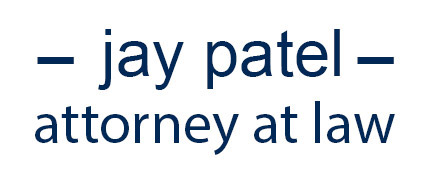What Crimes are Considered Felonies?
Similar to other states, Florida distinguishes felonies from misdemeanors by fines and the amount of time a person could spend in jail or prison. Felonies are more serious offenses and carry penalties of more than a year, and up to life in prison. A felony can also carry the death penalty. If charged with a felony, find yourself an experienced lawyer as soon as possible.
Felonies in the state of Florida include:
- Aggravated Battery
- Aggravated Assault
- Homicide
- Kidnapping
- Robbery
- Carjacking
- Stalking
- Sexual Battery
- GrandTheft (over $750)
Penalties for felonies depend on the details of the felony and are classified by degree.
Capital Felonies
Capital felonies are punishable by the death penalty or life in prison without parole. First-degree murder is an example of a capital felony.
Life Felonies
Life felonies are punishable by life imprisonment and a fine of up to $15,000. Examples are kidnapping a child younger than 13 and human trafficking.
First-Degree Felonies
Felonies of the first degree in Florida are punishable by 30 years in prison and a fine of up to $10,000. Examples include carjacking, aggravated battery on a law enforcement officer, and burglary with assault or battery.
Second-Degree Felonies
Second-degree felonies can result in prison of up to 15 years and a fine of up to $10,000. Homicide, extortion, and a felon in possession of firearms are examples.
Third-Degree Felonies
Third-degree felonies are the lowest felonies in Florida, punishable by up to five years in prison and a fine of up to $5,000. Examples include aggravated stalking, or theft of a vehicle or firearm.
Enhanced Felony Sentences
People who have previously been convicted of two or more felonies and are convicted of another felony may be sentenced to a lengthy prison term. Habitual offenders often face extended prison terms imposed by the judge. Some enhancements are Prison Releasee Reoffender (PRR) and Habitual Felony Offender (HFO). These enhancements should be examined carefully when reviewing a felony case.
Felony Sentencing in Florida
In Florida, judges are required to use a sentencing scoresheet that determines how they will sentence someone who is convicted of a felony. The Scoresheet calculates sentencing points based on offense severity (1 thru 10), characteristics of the offense (injuries, firearms), and any criminal history of the defendant. Judges use the points total to guide their decisions regarding a sentence term.
Non-Prison Sanctions: For any prisoner whose sentencing points total less than 44, judges may impose non-prison sanctions. These sanctions include probation, community control, split sentences, and suspended sentences.
Prison Sentence: The law presumes a prison sentence for an offender whose sentencing points score 44 or higher. The judge can set a sentence anywhere from the lowest possible prison sentence and the maximum sentence authorized for that crime. The Judge may find that an offender qualifies for a Downward Departure to avoid prison. Downward Departures are presented and proven at Sentencing by the Defense.
Felony Sentencing Alternatives in Florida
Florida law does authorize numerous alternatives to going to prison. These include:
- Probation with or without an adjudication of guilt
- Community control with intensive supervision
- Split sentence with probation
- Suspended sentence with probation
- Treatment programs
- Problem-solving courts: Veteran’s Court, Drug Court, and Mental Health Court
- Downward Departures to avoid prison
A first-time offender charged with a third-degree felony can be eligible for pre-trial intervention if the State offers it. This type of intervention offers first-time offenders a chance to avoid a trial and conviction. There will be stipulations attached to pre-trial intervention, such as counseling, treatment, education, or supervision services, which must be agreed to by the defendant. Once the intervention period is over, and the program is successfully completed, the State will announce a dismissal of the charges.
Offenders sent to prison will generally serve 85% their sentence. A sentence that the judge pronounces reflects the entire period that the offender must serve, not taking gain time in consideration. The Court takes the position that gain time reductions are calculated by the Department of Corrections. There can be reductions more than 15% a sentence by earning incentives in the correctional facility by completing work or specific tasks.
This is why it is so critical for experienced attorneys for felonies to represent you. The law in Florida for any felony is complicated. Your criminal defense lawyer should be familiar with all aspects of the law, the courts, and any prison time you could be facing.
Choose the Experienced Lawyer for Felonies that You Deserve
A felony conviction often has severe and long-lasting consequences for yourself and your family. Not all lawyers for felonies have the expertise to deal with law enforcement and the courts like Jay Patel. There are many ways a felony can ruin your life, from lessening the chance to go to school, qualifying for certain government benefits, the ability to vote, own or possess a firearm, or making it doubly challenging to secure a decent job.
If you are charged with a felony in Florida, do not wait. Talk with an attorney about your case. Only an experienced criminal defense attorney can help you understand your options and will obtain the best possible outcome for you. Contact our office today to learn more.
